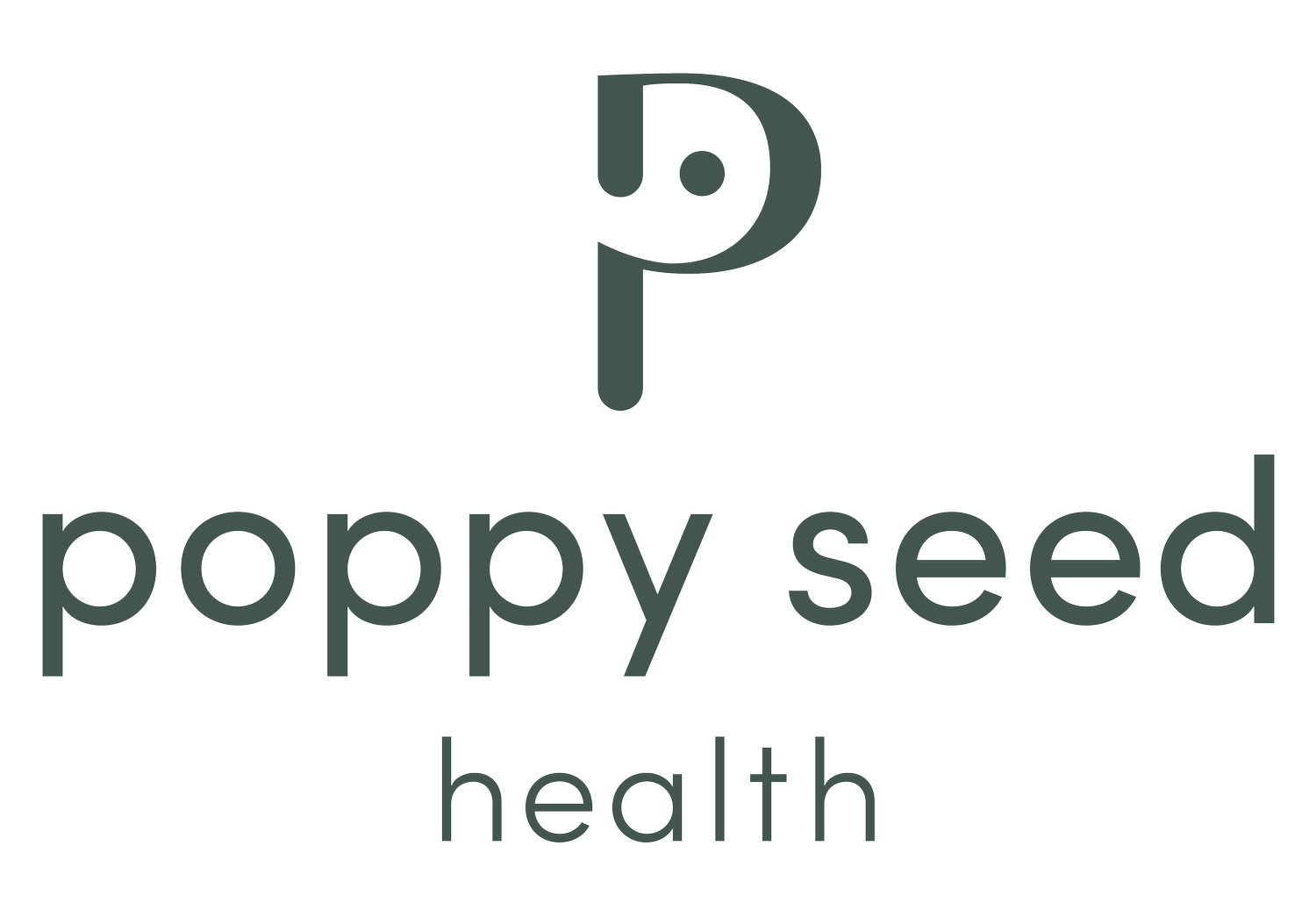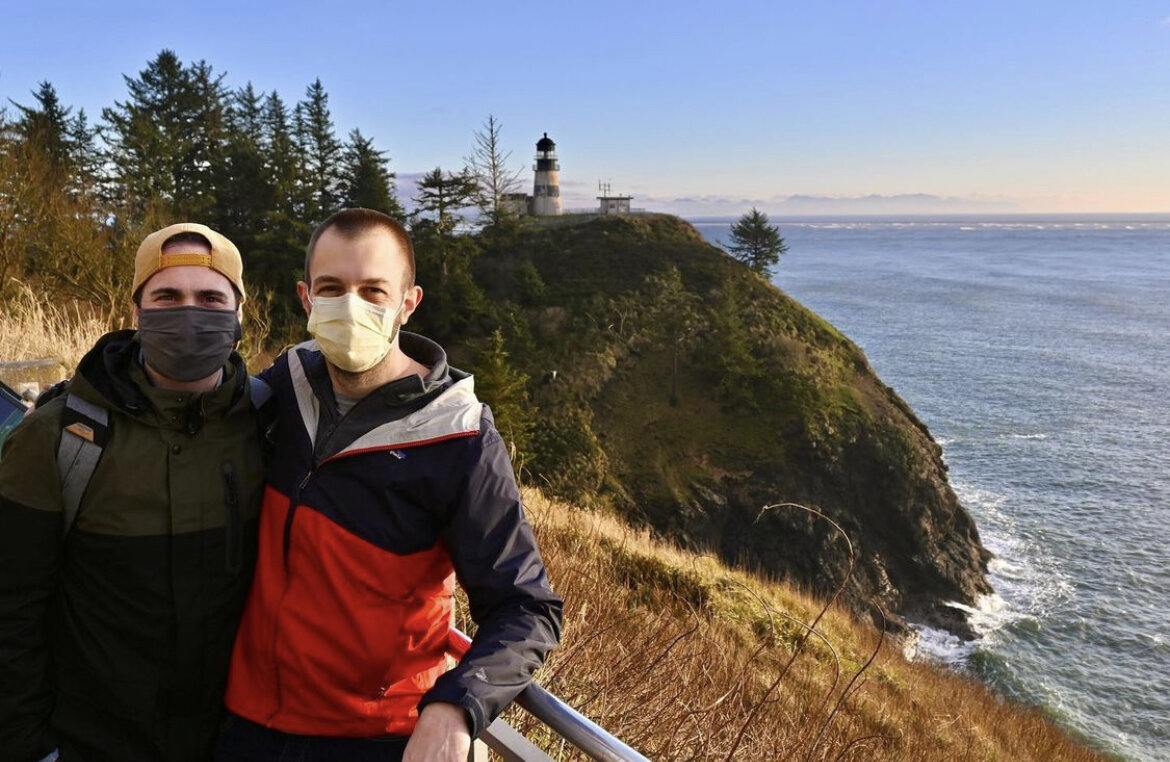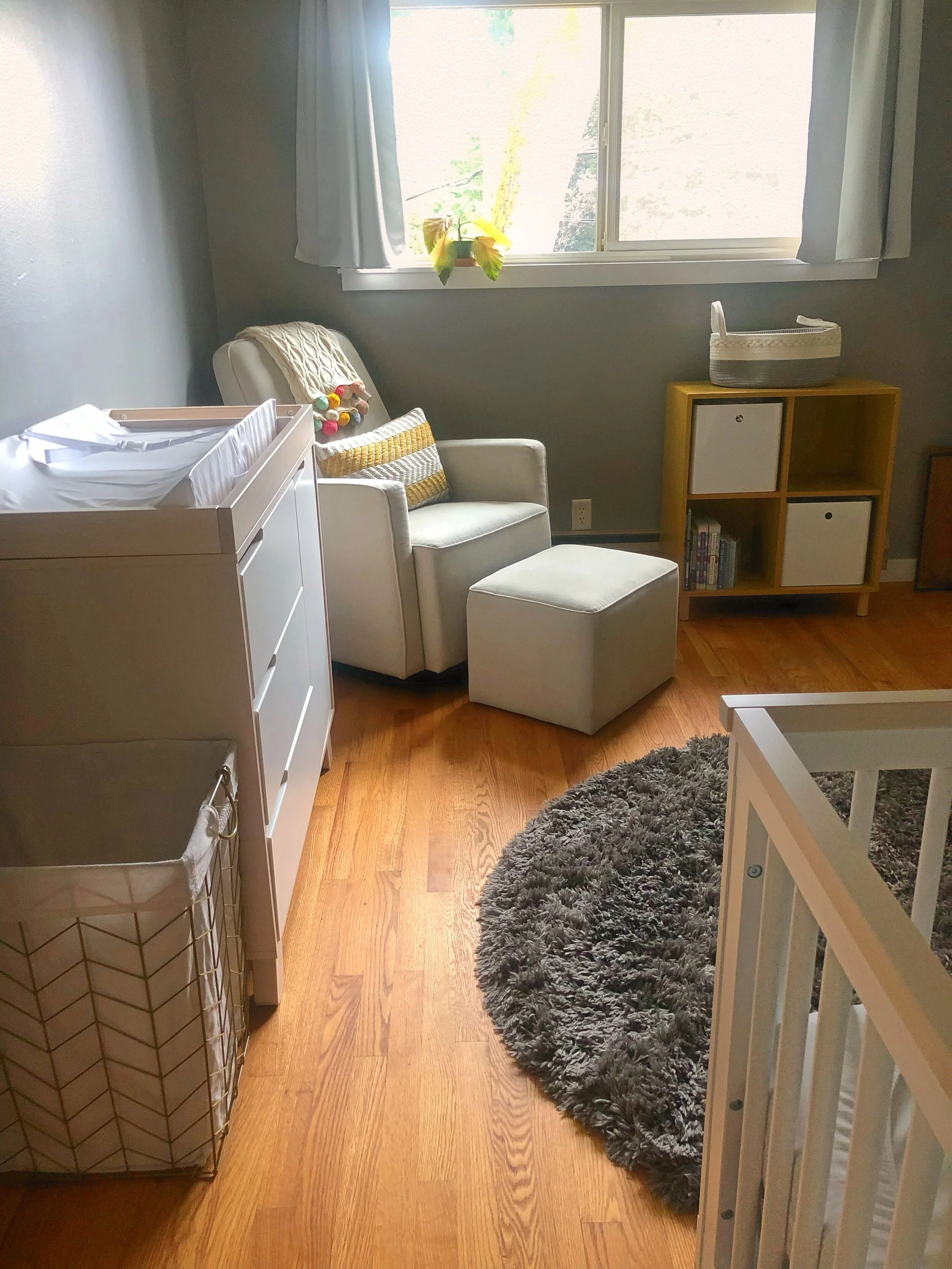Adoption: How These Dads are Keeping Birth Mom in Mind
Guest Post By: Amanda Huelskamp, Senior Manager, Communications, Poppy Seed Health
Alex (left) and Garth (right) on their wedding day in 2018, photographed by Rachel Birkhofer.
They say raising children takes a village. I think even getting to that point takes one, too. If you’re familiar with Poppy Seed Health, you know we believe that there is no one, linear journey to parenthood. We’re proud to bring you stories highlighting the twists and turns that journey can take, and shining a special light on the pathways to parenthood that stray from the norm.
This month, in honor of Pride, I’m excited to introduce you to Alex, my big brother, and his husband Garth. Alex and Garth are a same-gender couple living in Seattle, Washington. Poppy Seed Health has been following them along their journey to adoption, while they anxiously await a placement with a child. At any moment, they could get a call instructing them to get to another state within 24 hours for a shot at adopting a baby. As an excited auntie-to-be, they invited me into their world to discuss what brought them to this point, and their considerations for the hopeful “kiddo” to come (as they have affectionately begun to call their baby-to-be).
Early on in life in their respective gay journeys, one of the hurdles both Alex and Garth faced in accepting their sexualities (and in coming out), was mourning the idea of what their life was supposed to look like—particularly around parenthood.
Garth, who grew up in a religious community in Utah, recalled a conversation he had with an acquaintance while he was still closeted. “It was during a time that I was processing my identity as a gay man, and it made me so sad that I wouldn’t get to become a parent. I thought accepting being gay meant I couldn’t have children. When I met up with my friend, I told her I was struggling because I had found out that I couldn’t have kids. Of course, she thought I meant biologically, but I really meant that being gay felt like a death to my pathway to fatherhood,” he said.
I recall that also being a point of pain for less-accepting family members when Alex came out. “I’m fine with him being gay, but sad he won’t get to become a Dad,” I recall hearing when he was out of earshot. Educating the ill-informed is a duty I’ll happily continue to take on on his behalf.
As Alex and Garth grew to accept their own identities—while living on opposite sides of the country, and, at this point, and not having met yet—they grew more comfortable with the concept of what their futures could hold. Having children, as they learned, was both a possibility and a priority for each of them.
“We both knew and accepted that having kids was our goal—it was important for us individually in who we sought out in a partner, and one of the conversations we had early on when we were dating,” Alex said.
Alex and Garth were married in 2018 after a stable, sweet romance that originally started on an app. They began family planning conversations early, as they recognized their path might not be easy.
“After lots of research, we concluded that surrogacy is beautiful—but we felt that adoption better aligned with our personal values. We didn’t feel responsible necessarily to carry on our own lineages, we just wanted to give a child a good home.”
“Queer people understand the power of chosen family. We’re already free of heteronormative expectation; so we feel freedom to build whatever we want.”
Looking for an adoption agency started the same way anything does: a search online. As a gay couple, they’ve had to work backwards to determine what’s really available to them. For example, many agencies are faith-based and won’t adopt to same-gender couples. The sites are delicate in how they express the restriction: “Only adopting to traditional families,” and the like. They’re creative in the way they say, “no gays allowed.”
Throughout their search, Alex and Garth wanted to make sure that a prospective birth mom would have access to counseling and resources, so that she may move forward from adoption with support. Studies show that lives of birth parents can be volatile after adoption. They wanted the agency they worked with to adequately prioritize the wellbeing of the birth family.
Garth (left) and Alex (right) on an adventurous day trip in 2020.
Looking for an agency, they recalled, was a strange combination of a business transaction and a deeply personal journey. “With adoption, I didn’t want us to put ourselves in a position where we were inadvertently gaining from someone’s disadvantage. I really questioned whether there was an ethical way to adopt. If the birth mom had had more support on the front end, would they have ended up here, and been happy with this result?” Alex told me.
If Alex and Garth are placed with a child, the birth mom has a grace period to change her mind, and decide to parent. That time frame varies by state, ranging from 48 hrs to 90 days. “That prospect seems terrifying as a hopeful parent, but is understandable as you consider the emotional nature of the decision. With the agency that we selected, expectant/birth mom has a dedicated social worker (separate from ours) who can follow up with her post-placement. They specifically make counseling available.”
After they selected an agency, they filled out an adoption planning questionnaire to guide their placement criteria, and underwent parenting classes covering how to talk to children about the fact that they’re adopted. The goal: to help the whole family, prospective kiddo included, develop a healthy, holistic approach to that story.
Alex and Garth’s adoption agency does not allow closed adoptions. An “open” adoption structure varies, but this typically means that the birth parents and adoptive family speak before and after the child is born, and generally continue to share updates throughout the child’s life. This structure is opposite of a “closed” adoption, where the identity of the birth mother remains confidential, and there is no contact between the families. Decades of research have shown that kids who have access to their own personal and cultural history do better overall. Alex and Garth are comfortable with the open adoption structure, and hope to take every opportunity to introduce “kiddo” to their unique personal history and family as possible.
The couple has already started building their nursery, complete with some of their favorite children’s books and dinosaur onesies.
The placement criteria Alex and Garth set personally was wide - the agency allowed them to select how comfortable they were with children born with substance addiction, for instance. “We also learned that the agency allows you to specify the race(s) of a child you’d consider adopting. You cannot specify a preferred gender, but you can for race. We couldn’t wrap our heads around why race would possibly be a ‘selectable criteria.’ But we now know and recognize that transracial adoptions are incredibly complicated for the adoptee. It’s something we are personally open to, and working to learn more about each day.”
In researching transracial adoptions, Alex and Garth were careful to tune into the voices of adults who had come from that background. Angela Tucker is a well-known example. Angela is a Black woman, the adoptive child of white parents, and the subject of the documentary "Closure." She hosts The Adoptee Next Door, a podcast detailing her experience and inviting adoptees from different backgrounds to uplift their rarely-heard voices.
Alex and myself, Amanda, in the late 90s, both victims of the bowl cut.
“As white men, we knew we’d have blind spots in a transracial adoption, not having those lived experiences. We feel comfortable with our open parameters for any race. But we know that adoption is rife with questions about how ethical that is. We’re committed to doing whatever it takes to ensure all sides are honored.”
At this point, Alex and Garth have an active adoption profile in every state that allows adoptions to same-gender couples. Their agency does advertising of this profile, included in their fee. As the adoring little sister, I can’t think of a better couple’s profile to land on.
“At any moment, our agency could call us with an expectant mother who has selected us, and is, say, four-months pregnant. We’d work through that process, likely meeting her, and planning together on how it’d all work. Alternatively, the agency could call us with a ‘baby already born,’ situation, where we’d need to be in any state within 24-hours to get placed. We keep grab-bags ready by the door in case we need them.”
The social perception of Alex and Garth’s journey to adoption has been mixed. As they’ve discovered, there’s a current of problematic, preconceived notions about these birth moms. “There’s a stigma attached to it, that the only people who would place their children up for adoption must come from awful circumstances or backgrounds—that’s not always the case, and it’s been strange to have to defend that.”
The financial side of adoption also gets questioned. “It’s almost like people try to ask, ‘how much will it cost you to buy this child?’ There is a business, transactional component to all of this, but those questions can feel icky,” they said.
Alex and Garth are pouring so much thought and love into this process. They’re trying to do it ethically, and in a way that honors possible “kiddo” and their family, while also navigating the usual hopes and fears that come with first-time parenting. “At the end of the day, we have a magnet on our fridge that says ‘Jesus had two dads, and he turned out okay.’ And we grin, and take some solace in that.”
At the beginning of it all, I was honored to be asked to write a letter of recommendation on behalf of the couple for the agency to review. In reflecting on it, my words from that letter still ring true:
“I believe strongly that Alex and Garth are fit to adopt a child—with the combination of their values and skills, any child would surely be shaped into a well-rounded, self-aware, and, above all else, kind individual. I wholeheartedly support Alex and Garth’s pursuit in adopting a child, and know that when a child is placed with them, they’ll be fortunate to grow up so very loved.”
Poppy Seed Health is a telehealth solution offering 24/7 text access to doulas, midwives, and nurses. Our vetted birth workers are ready around the clock to provide emotional support to pregnant and postpartum people, and those experiencing loss. If you are considering adoption, we are ready and able to support you, too. Download our app to get started today.
Our fully-vaccinated reunion in Seattle, 2021.





